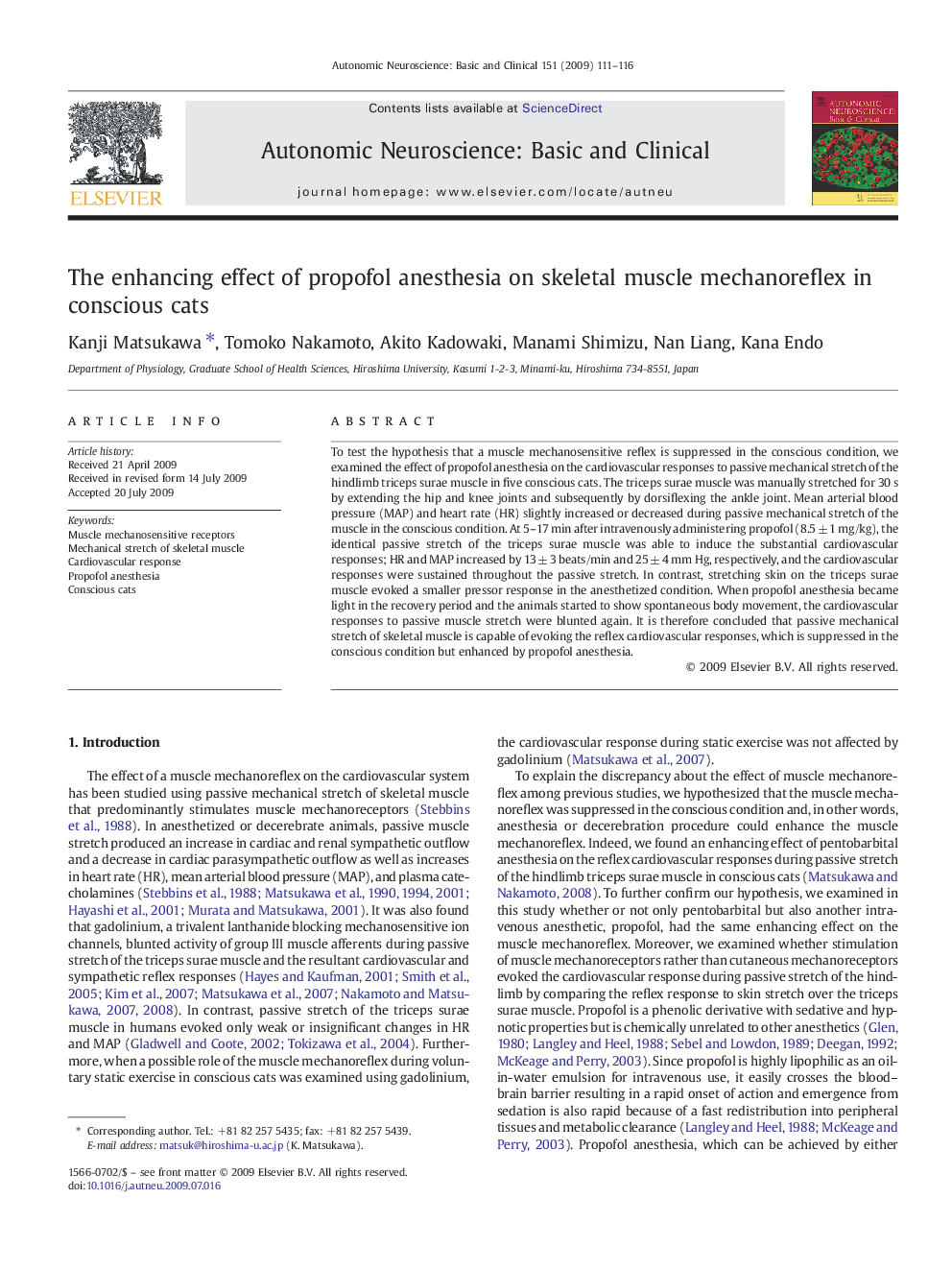| Article ID | Journal | Published Year | Pages | File Type |
|---|---|---|---|---|
| 3035246 | Autonomic Neuroscience | 2009 | 6 Pages |
To test the hypothesis that a muscle mechanosensitive reflex is suppressed in the conscious condition, we examined the effect of propofol anesthesia on the cardiovascular responses to passive mechanical stretch of the hindlimb triceps surae muscle in five conscious cats. The triceps surae muscle was manually stretched for 30 s by extending the hip and knee joints and subsequently by dorsiflexing the ankle joint. Mean arterial blood pressure (MAP) and heart rate (HR) slightly increased or decreased during passive mechanical stretch of the muscle in the conscious condition. At 5–17 min after intravenously administering propofol (8.5 ± 1 mg/kg), the identical passive stretch of the triceps surae muscle was able to induce the substantial cardiovascular responses; HR and MAP increased by 13 ± 3 beats/min and 25 ± 4 mm Hg, respectively, and the cardiovascular responses were sustained throughout the passive stretch. In contrast, stretching skin on the triceps surae muscle evoked a smaller pressor response in the anesthetized condition. When propofol anesthesia became light in the recovery period and the animals started to show spontaneous body movement, the cardiovascular responses to passive muscle stretch were blunted again. It is therefore concluded that passive mechanical stretch of skeletal muscle is capable of evoking the reflex cardiovascular responses, which is suppressed in the conscious condition but enhanced by propofol anesthesia.
